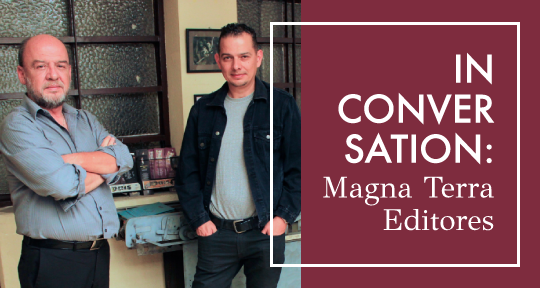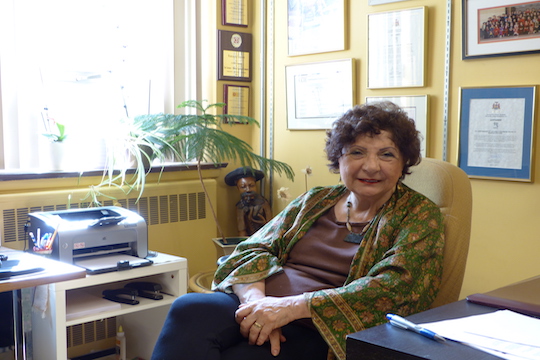If I were to describe Wingston González as a poet, I’d say he’s an unusual poet. Scratch that. To be more precise, the fractured aesthetics, the cadence, the triplets, the vertiginous narrative found in Wingston’s poetry, can only be summoned by the unusual artistic upbringing he had. Born in Livingston, brought up on Garífuna culture, traditional Guatemalan education, classical literature, and hip-hop music, Wingston stands as an undeniably original and musical wordsmith—utterly unique within the tradition of Guatemalan literature.
He is also an entrancing performer and a fascinating poet that keeps changing and augmenting his cultural and intellectual heritage.
Early July, Wingston and I got together at Casa Cervantes in downtown Guatemala City to talk about his creative process. Of course, we effortlessly drifted towards other topics. We ended up talking about music—like we often do—and ignoring the mathematical structure on which language is based. Wingston’s poetry, I might argue, has almost an allergic reaction to the formulaic configuration of Spanish. And it is thanks to that free will and unhindered flow that his verses explode and reach out with utter casualness.
Wingston argued that as time passes, he is less worried about fulfilling what is expected of him as a poet. The narrative fabric of his poetry is often based on everyday life and he admits he thrives on capturing that everydayness, either through the plot, though mostly through the words.
During the translation process of the Four Poems, featured in Asymptote’s Summer 2018 issue, he repeatedly confessed that while writing them he was concerned people might not understand what he was trying to say.
“I wanted to play with the language, but I was unsure if it made any sense,” he insisted, and months later, in Casa Cervantes, he repeated that line.
The result—and his poetry in general—though intellectual and highly literary, is also tinged with elements of the quotidian plus the type of slang and idiolects found in Livingston, in Guatemala. From references to Garífuna culture, musical narrative, unorthodox rhythmic pattern, ritualistic cadence, inventive spelling, stutters, theatrical delivery, and—as he calls them—a set of useless facts, these Four Poems show many of the poet’s tricks, antics, and cultural inheritance. His unrestrained flow truly showcases the vitality he wants to impregnate in his poetry.
José García Escobar (JGE): Your poems featured in Asymptote’s July issue, I think, are a perfect example of the type of aesthetics you used at the beginning of your career. In them, there is a lot of experimentation, musicality, unusual rhythm and unorthodox narration—things you rarely use now. How has your approach towards poetry changed over the years?
Wingston González (WG): I don’t know if my approach has changed, but the process definitely has. Naturally, when you start writing, you’re not entirely aware of what you’re doing. The act of writing becomes automatic. That happened to me. But right now I’m not as worried as I was in the past with the limitations of language. I’m more concerned with the limitations of human nature. I think that with my poetry I’m getting closer to how I speak every day. That is my intention now, to use everyday language. Even if these poems, the ones featured in Asymptote’s Summer 2018 issue, are pretty experimental, I remember I was worried that I wouldn’t be able to communicate what I was trying to say. I thought, “What am I doing with my ax!” I was afraid I wouldn’t be able to reach the reader. Now I’m not as concerned about this.
READ MORE…








